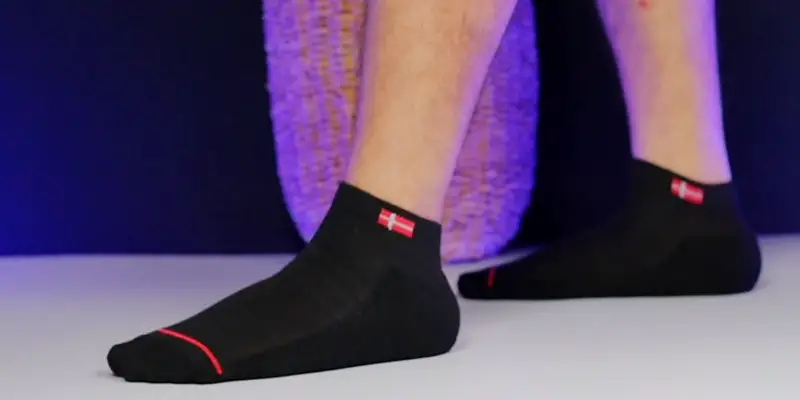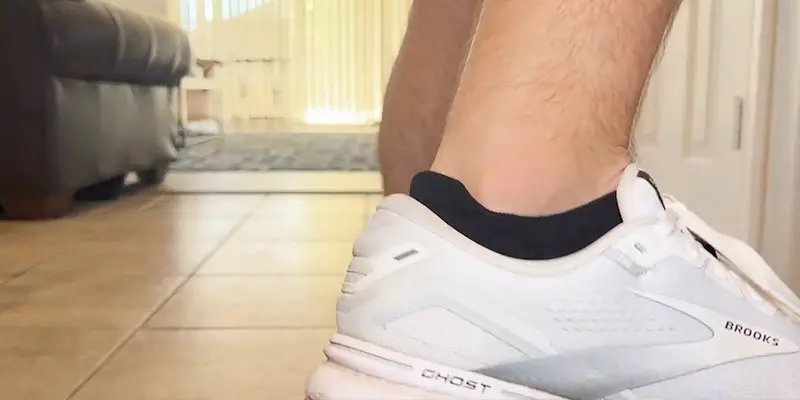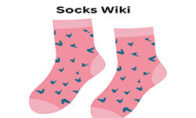Hi, I'm Christopher Bevans, the creator of SocksWiki.com. With a background in fashion design and a passion for innovation, I’m here to share my knowledge on socks from troubleshooting tips to detailed buying guides. I believe the right pair of socks can make all the difference, and through this site, I aim to help you find the perfect fit for every occasion.
Hi, I'm Christopher Bevans, the creator of SocksWiki.com. With a background in fashion design and a passion for innovation, I’m here to share my knowledge on socks from troubleshooting tips to detailed buying guides. I believe the right pair of socks can make all the difference, and through this site, I aim to help you find the perfect fit for every occasion.
Yes, polyester socks can make your feet stink due to their low breathability, which traps moisture and sweat, creating a warm environment where bacteria thrive and produce odor.
Polyester socks are popular for their durability and affordability, but they may not be the best choice for keeping your feet fresh.
Unlike natural fibers such as cotton and wool, polyester lacks breathability and moisture-wicking properties, potentially creating a warm, humid environment inside your shoes.
This can lead to increased perspiration, which promotes bacterial growth and, consequently, makes your feet stink.
Understanding the relationship between sock material and foot health is crucial for making informed choices about your footwear.
Let’s delve into how polyester socks can contribute to foot odor and practical tips to mitigate this common issue.
Can Polyester Socks Make Your Feet Stink?

Yes, polyester socks can make your feet stink due to their inability to absorb moisture effectively, leading to increased sweat buildup and bacterial growth, which causes unpleasant odors.
Polyester socks have gained popularity due to their affordability, durability, and ease of care. However, there is a growing concern about whether these socks contribute to foot odor.
To understand this, it is essential to explore how polyester interacts with the feet and how it compares to other materials in terms of breathability, moisture management, and odor control.
Here are the reasons why do polyester socks make your feet stink:
The Nature of Polyester Socks
Polyester is a synthetic fiber made from petroleum-based products. It is known for its strength, durability, and resistance to shrinking and stretching.
These characteristics make polyester a popular choice for clothing, including socks.
However, the same properties that make polyester durable also contribute to its potential drawbacks, especially when it comes to foot health.

Breathability and Moisture Management
One of the primary functions of socks is to manage moisture and provide a comfortable environment for the feet.
Natural fibers like cotton and wool are highly breathable and absorbent, allowing them to wick moisture away from the skin effectively.
In contrast, polyester is less breathable and not as absorbent as natural fibers. This lack of breathability can trap heat and moisture against the skin, creating a warm and humid environment inside the shoe.
Increased Perspiration and Odor
Feet have numerous sweat glands, and when they are enclosed in a warm and humid environment, perspiration can increase significantly.
Polyester socks, due to their limited breathability, can exacerbate this problem by preventing proper air circulation.
The increased moisture and warmth create an ideal environment for bacteria to thrive. Bacteria break down sweat and dead skin cells, producing unpleasant odors as a byproduct.
Therefore, wearing polyester socks can lead to higher levels of perspiration and a greater likelihood of foot odor.
Comparing Polyester to Other Materials
When comparing polyester to natural fibers like cotton and wool, the differences in moisture management and breathability become apparent.
Cotton is highly absorbent and can help keep feet dry by wicking moisture away from the skin.
Wool, on the other hand, has natural antibacterial properties and can manage moisture effectively, keeping feet dry and reducing the risk of odor.
Blended fabrics that combine polyester with natural fibers may offer a balance between durability and moisture management, but pure polyester socks are more likely to contribute to foot odor.

Hi, I'm Christopher Bevans, the creator of SocksWiki.com. With a background in fashion design and a passion for innovation, I’m here to share my knowledge on socks from troubleshooting tips to detailed buying guides. I believe the right pair of socks can make all the difference, and through this site, I aim to help you find the perfect fit for every occasion.
- Latest Posts by Christopher Bevans
-
How to Get Rid of a Sock Tan Line Naturally & Quickly
- -
What Socks to Wear With Grey Suit and Brown Shoes
- -
What Socks to Wear With Dress Shoes in 2026?
- All Posts


